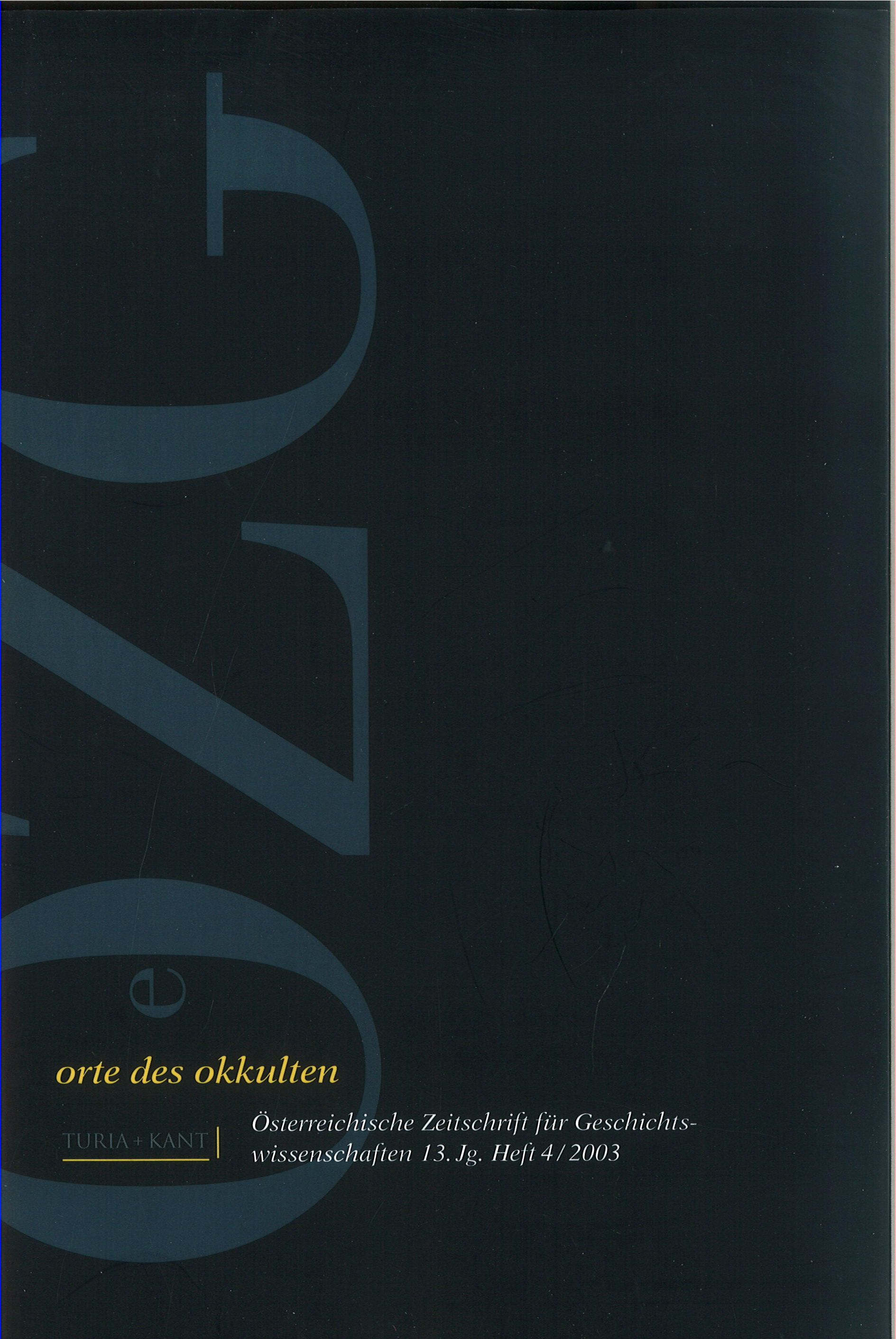Plebeian Spiritualism: Some Ambiguities of England's Enlightenment, Reformation, and Urbanisation
DOI:
https://doi.org/10.25365/oezg-2003-14-4-6Abstract
lt is superficial to speak of the occult as >post-Enlightenment.< The moderate Enlightenment had a basis in Newtonian physics which no >radical Enlightenment< ever claimed. The ambiguities of this physics fed occult activities into the 20th century. English plebeian spiritualists saw themselves as extending materialism into superfine or imponderable regions. Qualities conventionally associated with the >female< assumed a crucial role. Thus spiritualism restored the feminine to a centrality that it had not had in England since the death of the last Mary-substitute, Queen Elizabeth (1603). This restoration flourished most in newly industrialised areas of Northern England where, coincidentally or not, the impact of the 16th century formation had been notably superficial.


